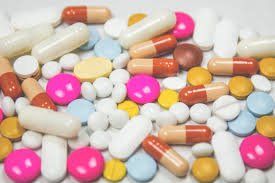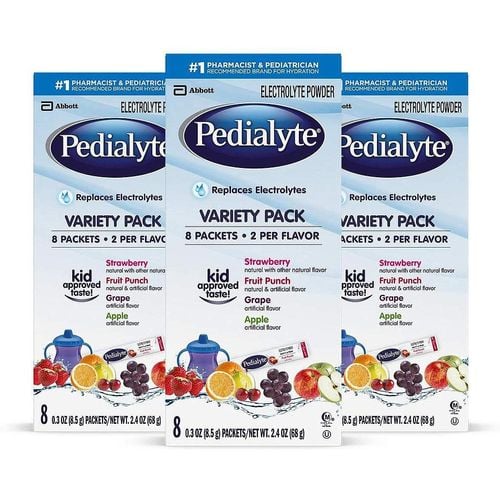Biseptol (generic name: trimethoprim) is an antibiotic used to treat bacterial infections. Trimethoprim is available in tablet form with doses of 100 mg or 480 mg. The information provided below cannot replace medical advice. Always consult a doctor or pharmacist before using this medication.
1. What Is the Function of Trimethoprim?
Trimethoprim is an antibiotic used to treat bacterial infections by inhibiting bacterial growth. This antibiotic is effective only against bacterial infections and does not work for viral infections (e.g., the common cold or flu). Misuse or overuse of antibiotics can reduce their effectiveness.
Trimethoprim is also used to treat certain lung infections (such as Pneumocystis carinii pneumonia) and prevent kidney infections in specific patients.
Other uses not listed in the approved drug label may be prescribed by your doctor. Use this medication only as directed by a healthcare professional.
2. Dosage of Trimethoprim for Adults
Dosage for Urinary Tract Infections:
- Acute uncomplicated infections: Take 100 mg every 12 hours or 200 mg every 24 hours for 10 days.
- Preventive dose for cystitis: Take 100 mg before bedtime for 6 weeks to 6 months.
Dosage for Pneumocystis Carinii Pneumonia (PCP):
- For HIV-infected patients: Take 15 mg/kg/day, divided into 3 doses (additionally 100 mg/day) for 21 days.
- Trimethoprim combined with dapsone is recommended as an alternative treatment for mild to moderate Pneumocystis jiroveci pneumonia.

3. Dosage of Trimethoprim for Children
For Acute Otitis Media (Middle Ear Infection):
Children aged 6 months and older: Administer 5 mg/kg every 12 hours for 10 days.
For Urinary Tract Infections:
Acute uncomplicated infections:
- Ages 12–18: Administer 100 mg every 12 hours or 200 mg every 24 hours for 10 days.
- Ages 2 months to under 12 years: Administer 2–3 mg/kg every 12 hours for 10 days.

4. How to Take Trimethoprim
Carefully measure your dose using a medication spoon or cup.
Take the medication on an empty stomach at least 1 hour before or 2 hours after meals, as directed by your doctor. If you experience stomach discomfort, it can be taken with food.
Dosage is based on your medical condition and response to treatment.
For antibiotics to work effectively, maintain a consistent level of the drug in your body. Take the medication at regular intervals and complete the full course as prescribed, even if symptoms improve after a few days. Stopping the medication prematurely may allow bacteria to continue growing and cause the infection to return. Contact your doctor if your condition persists or worsens after several days.
5. Side Effects
Stop using the medication and seek immediate medical help if you experience signs of an allergic reaction: Rash, difficulty breathing, swelling of the face, lips, tongue, or throat.
Severe side effects include:
- Fever, chills, body aches, flu-like symptoms, mouth or throat ulcers.
- Pale skin, unusual bruising, abnormal bleeding (nose, mouth, vagina, or rectum), purple or red spots under the skin.
- High potassium levels (slow heart rate, weak pulse, muscle weakness, numbness).
- Severe headache with muscle cramps, confusion, weakness, poor coordination, or shallow breathing
Common side effects include:
- Stomach pain, vomiting, diarrhea.
- Tongue pain or swelling.
- Mild itching or skin rash.
This list is not exhaustive. If you have concerns about side effects, consult your doctor or pharmacist.

6. Precautions Before Using Trimethoprim
Inform your doctor or pharmacist if:
- You are pregnant or breastfeeding. Use only as prescribed.
- You are allergic to any component of the medication.
- You are taking other medications (including prescription, over-the-counter, herbal, and supplements).
- You intend to administer the drug to children or elderly individuals.
- You have a medical history of any other health conditions.
7. Special Considerations (Pregnancy, Breastfeeding, Surgery, etc.)
There is insufficient research to determine the risks of using this medication during pregnancy or breastfeeding. Consult your doctor to weigh the benefits and risks.
8. Drug Interactions
Trimethoprim may interact with other medications, altering their effectiveness or increasing side effects. Provide a complete list of all medications you are taking (including over-the-counter, herbal, and supplements) to your doctor.
Common medications that interact with trimethoprim include:
Drugs that may interact with trimethoprim include:
| STT | Name | STT | Name | STT | Name |
| 1 | Bepridil | 21 | Benazepril | 41 | Erythromycin |
| 2 | Cisapride | 22 | Bretylium | 42 | Flecainide |
| 3 | Dofetilide | 23 | Candesartan Cilexetil | 43 | Fluconazole |
| 4 | Levomethadyl | 24 | Captopril | 44 | Fluoxetine |
| 5 | Mesoridazine | 25 | Chloral Hydrate | 45 | Foscarnet |
| 6 | Pimozide | 26 | Chloroquine | 46 | Fosinopril |
| 7 | Terfenadine | 27 | Chlorpromazine | 47 | Gemifloxacin |
| 8 | Thioridazine | 28 | Clarithromycin | 48 | Halofantrine |
| 9 | Acecainide | 29 | Desipramine | 49 | Haloperidol |
| 10 | Ajmaline | 30 | Dibenzepin | 50 | Halothane |
| 11 | Amiloride | 31 | Disopyramide | 51 | Hydroquinidine |
| 12 | Amiodarone | 32 | Dolasetron | 52 | Ibutilide |
| 13 | Amisulpride | 33 | Doxepin | 53 | Imipramine |
| 14 | Amitriptyline | 34 | Droperidol | 54 | Irbesartan |
| 15 | Amoxapine | 35 | Eltrombopag | 55 | Isoflurane |
| 16 | Aprindine | 36 | Enalapril | 56 | Isradipine |
| 17 | Arsenic Trioxide | 37 | Enalaprilat | 57 | Leucovorin |
| 18 | Astemizole | 38 | Enflurane | 58 | Lidoflazine |
| 19 | AzilsartanMedoxomil | 39 | Eplerenone | 59 | Lisinopril |
| 20 | Azimilide | 40 | Eprosartan | 60 | Lorcainide |
| 61 | Losartan | 71 | Pirmenol | 81 | Risperidone |
| 62 | Mefloquine | 72 | Prajmaline | 82 | Sematilide |
| 63 | Mercaptopurine | 73 | Probucol | 83 | Sertindole |
| 64 | Methotrexate | 74 | Procainamide | 84 | Sotalol |
| 65 | Moexipril | 75 | Prochlorperazine | 85 | Spiramycin |
| 66 | Nortriptyline | 76 | Propafenone | 86 | Spironolactone |
| 67 | Octreotide | 77 | Pyrimethamine | 87 | Sultopride |
| 68 | OlmesartanMedoxomil | 78 | Quinapril | 88 | Tedisamil |
| 69 | Pentamidine | 79 | Quinidine | 89 | Telithromycin |
| 70 | Perindopril Erbumine | 80 | Ramipril | 90 | Telmisartan |
| 91 | Trandolapril | 97 | Zofenopril | 103 | Fosphenytoin |
| 92 | Triamterene | 98 | Zotepine | 104 | Phenytoin |
| 93 | Trifluoperazine | 99 | Amantadine | 105 | Repaglinide |
| 94 | Trimipramine | 100 | Anisindione | 106 | Rosiglitazone |
| 95 | Valsartan | 101 | Didanosine | 107 | Tolbutamide |
| 96 | Vasopressin | 102 | Digoxin |
9. Food and Alcohol Interactions
Food, alcohol, and tobacco may interact with certain drugs. Consult your doctor about using trimethoprim with food, alcohol, or tobacco.
10. Health Conditions Affecting Trimethoprim Use
Inform your doctor if you have:
- Anemia: Higher risk of blood-related side effects.
- Kidney Disease: Increased risk of side effects.
- Liver Disease: Greater likelihood of adverse effects.
11. Storage Instructions
Store at room temperature, away from moisture and light. Do not store in the bathroom or freezer. Read the storage instructions on the packaging or ask your pharmacist for guidance. Keep the medication out of reach of children and pets.
Do not flush unused medications down the toilet or pour them into drains unless instructed. Safely dispose of expired or unused medication by consulting a pharmacist or waste disposal service.
To arrange an appointment, please call HOTLINE or make your reservation directly HERE. You may also download the MyVinmec app to schedule appointments faster and manage your reservations more conveniently.













